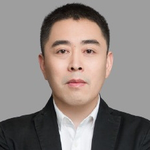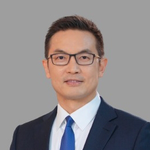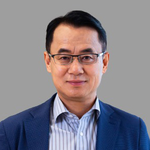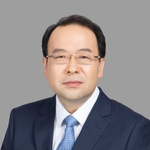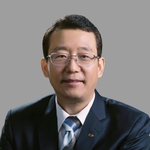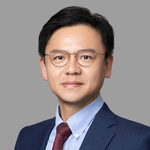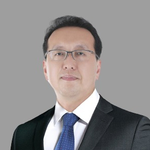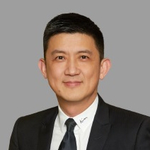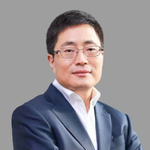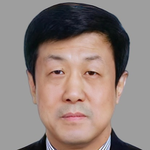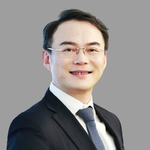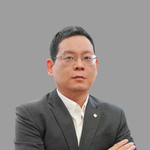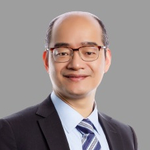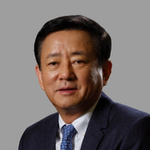- WELCOME REMARKS
ALYSON SHONTELL - REMARKS BY THE HOST CITY
- SETTING THE AGENDA
DEREK ZHANG - ONE-ON-ONE: How to Make the Impossible Possible?
Dr. Albert Bourla•ALYSON SHONTELLPfizer has been at the forefront of harnessing both science and technology to benefit the lives of many millions. At G500 Summit in Guangzhou, we will have a one-on-one conversation with Dr. Bourla on the following:
Global companies face challenges on all sides: Pandemics, political unrest, climate change, and macroeconomic uncertainty, to name just a few. As a result, there’s been a shift in the dominance of large enterprises in the way they used to. FORTUNE Global 500 companies will have to stay agile and innovative, in order to turn the impossible into the possible. We hear from the head of one of the largest and most important companies in the world today on how he steered his company through a once-in-a-century global crisis. - PANEL DISCUSSION: Changing Growth Goals: From Speed to Quality
XIN FU•Will Song•Weiming Xiang•Zhiping XiaoEmerging markets no longer want to grow as fast as possible. Now, leaders see efficiency and quality as new benchmarks for development. That transformation will push companies to change their objectives: To grow better, not faster. Can executives build sustainable growth, and prioritize their own high-quality development to promote the same in the broader economy?
- ONE-ON-ONE: Revitalizing the World's Economy
KEYU JIN•ALYSON SHONTELLThe world’s leading economies are trying to revitalize their economies after the COVID pandemic closed businesses, disrupted operations and forced governments to impose unprecedented interventions. Now, the specter of recession is looming. What are the prospects for the global economy? And how can policymakers reignite growth and ward off an economic slowdown?
- NETWORKING BREAK
- ONE-ON-ONE: Can China Take Over the World’s Auto Market?
Xingya Feng•DEREK ZHANGONE-ON-ONE:
Digital Intelligence Transformation: Going Deeper and After years of trying to catch up, China’s automakers are now keeping pace with their foreign peers—and it’s thanks to the electrification of the car industry. China is now the world’s largest auto exporter, and foreign manufacturers now see Chinese car companies as their equals. But now the automotive industry faces new challenges, including a tough battle for market share. What will it take for Chinese companies to finally take pole position in the global car market? - PANEL DISCUSSION: Manufacturing Industry: Digital Transformation Moving Towards Practicality
Forest Hou•Yang Li•Daquan XuManufacturing was the powerhouse of the Chinese economy, spurring faster growth, higher employment and industrialization, But now the sector needs to change after the transformation from traditional manufacturing to intelligent manufacturing. Is China still willing to be the “world’s factory” in the new industrial division of labor? How can companies secure their existing advantages while developing new avenues for growth?
- PANEL DISCUSSION: The Next Step in Modern Healthcare
Siyuan Chen•Alex Gu•Chun Wu•LI ZHONGModern healthcare is one of the most important applications for new technologies—yet its companies are also among the most cautious.
New medical advances played a decisive role in creating the effective treatments, vaccines, drugs and life support systems that kept many COVID patients alive. Now that modern healthcare has helped manage the worst of the COVID-19 pandemic, what’s the next step for healthcare companies?
Siyuan Chen
Vice President, General Manager of Bristol Myers Squibb for China & Asia Cluster, President of China
Alex Gu
Senior Vice President and President of Medtronic Greater China
Chun Wu
Managing Director & Senior Partner Managing Partner of Greater China, BCG
LI ZHONG
President, Asia Pacific, Walgreens Boots Alliance
- ONE-ON-ONE: How Can Big Companies Make Fewer Mistakes?
Zhiping SongRisk management is becoming increasingly important for large companies. A single mistake can lead to significant losses or irreparable damage to a company’s reputation. Companies thus need to be able to navigate through a storm to prevent risks and make the right strategic choices. And if mistakes are unavoidable, how can companies recover, and learn from their experiences?
- LUNCHEON
- ONE-ON-ONE: Unlocking the Digital Power: How Smart Technologies Solve Real Problems?
CLAY CHANDLER•Dowson TongFrom unmanned mine trucks to the development of new drugs, the next-generation smart technology is becoming even more deeply integrated into various industries. Looking forward, how will the real economy be empowered by large-scale digital transformation with the help of AIGC, computer vision, digital-twin, big data etc. delivered by cloud computing and a 5G network? More importantly, how will these future technologies enable a high-quality economic and social development in a more sustainable and safe way?
- PANEL DISCUSSION: The Development of GBA
Richard Weixing Hu•Guangjun Jing•Huqing Liang•Jun YangThe Guangdong-Hong Kong-Macao Greater Bay Area (GBA) is poised to become a new pole of the global economy. Its location, economic strength, and policy innovations mean people expect much from this new economic hub. What opportunities can companies hope to gain by investing in the GBA? And how can policymakers and institutions help firms capture them?
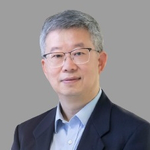
Richard Weixing Hu
Dean, Faculty of Social Sciences and UMDF; Distinguished Professor, Politics and Public Policy, University of Macau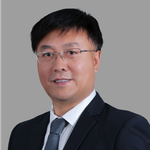
Guangjun Jing
Vice Chairman and General Manager, Guangzhou Industrial Investment Holding Group Co., Ltd.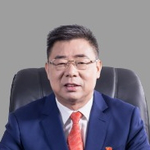
Huqing Liang
Chairman, Guangzhou Municipal Construction Group Co., Ltd.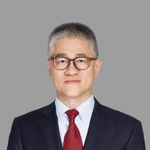
Jun Yang
Vice Chairman and General Manager, Guangzhou Pharmaceutical Group
- PANEL DISCUSSION: Reviving China’s Consumption
Larry Feng•Jasmine Xu•David Xiqiang Zhang•CLAY CHANDLEREconomists hoped that the end of the COVID pandemic would get consumers spending and shopping again. Yet the hoped-for post-COVID rebound in consumption has yet to materialize. Policymakers need to boost consumption to get the economic recovery back on track But in a sluggish market, what can be done to boost consumer confidence? And how can brands retain loyal customers and attract young fans?
- PANEL DISCUSSION: Sketching the Blueprint for Energy Transition
Xiansheng Sun•Michael Zhong•胡泽义Clean energy sources such as wind, solar, hydropower, nuclear and hydrogen are becoming a critical pillar of global energy supply and consumption. As economies integrate both new and traditional energy sources, how should governments and enterprises focus on future energy choices?
- NETWORKING BREAK
- PANEL DISCUSSION: Turning ESG Promises into Actions
William Yu•Cherry Zhu•ALYSON SHONTELLESG is sweeping the globe, as companies now highlight their work to support the social good. Yet critics argue much of these efforts are actually “greenwashing,” covering for harmful practices elsewhere in the business with feel-good measures. How can we ensure that ESG is not just a gimmick? Can companies truly integrate these standards throughout their operations, rather than just use them as an easy label?
- ONE-ON-ONE: Feeding the World with New Agricultural Technologies
Robert AspellThe agriculture industry bears the responsibility of meeting the growing global population’s continuous demand for food. To accomplish that arduous task, companies will need to harness the latest technologies to enhance their productivity. What are the world’s biggest agricultural companies doing to help the world’s farmers grow more, and better, food?
- PANEL DISCUSSION: Ocean Economy: The New Blue Engine
Dalu Sun•Xiaojun YanThe ocean, which covers over 70% of the Earth’s surface, is one of the least understood, and least utilized, resources on the planet. Yet the ocean economy—fishing grounds, offshore wind and nuclear power, deep sea mining, ocean carbon sequestration, to name just a few activities—has emerged as a new engine driving economic development. How can we develop and use ocean resources, while avoiding damaging this unique environment?
- ADJOURN
CLAY CHANDLER - COCKTAIL RECEPTION AND AWARD CEREMONY
18:00-18:03 FORTUNE GLOBAL 500 AWARD CEREMONY REMARKS
Julia CHU, General Representative of FORTUNE Global 500 China
18:03-18:10 INTERPRETATION OF FORTUNE GLOBAL 500 RANKING
WANG Fang, Executive Editor, Shanghai, FORTUNE - DINNER
Prof. Gang FanONE-ON-ONE : Dialogue with Economists
FAN Gang , Vice President, China Economic System Reform Research Association; Director, National Economic Research Institute (confirmed)
Moderator: YANG Anqi, New Media Associate Executive Editor, FORTUNE China - PEARL RIVER NIGHT CRUISE
- GUANGZHOU TOUR

